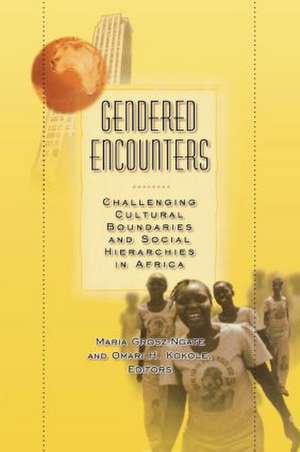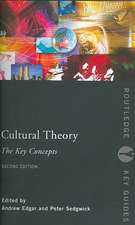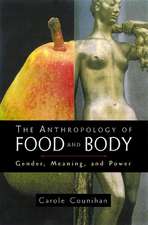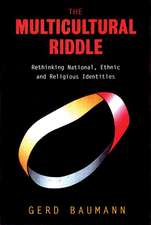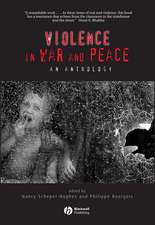Gendered Encounters: Challenging Cultural Boundaries and Social Hierarchies in Africa
Editat de Maria Grosz-Ngate, Omari Kokoleen Limba Engleză Paperback – 10 dec 1996
Preț: 390.96 lei
Nou
Puncte Express: 586
Preț estimativ în valută:
74.81€ • 77.95$ • 61.94£
74.81€ • 77.95$ • 61.94£
Carte tipărită la comandă
Livrare economică 03-17 aprilie
Preluare comenzi: 021 569.72.76
Specificații
ISBN-13: 9780415916431
ISBN-10: 0415916437
Pagini: 266
Dimensiuni: 152 x 229 x 15 mm
Greutate: 0.49 kg
Ediția:1
Editura: Taylor & Francis
Colecția Routledge
Locul publicării:Oxford, United Kingdom
ISBN-10: 0415916437
Pagini: 266
Dimensiuni: 152 x 229 x 15 mm
Greutate: 0.49 kg
Ediția:1
Editura: Taylor & Francis
Colecția Routledge
Locul publicării:Oxford, United Kingdom
Notă biografică
Maria Grosz-Ngate is an anthropologist who lives in Ithaca, NY. Omari Kokole was Professor of Political Science and Director of the Institute of Global Studies, at the State University of New York, Binghamton.
Cuprins
Introduction PART ONE WOMEN NEOOTIATINO BOUNDARIES Crossing Boundaries/Changing Identities: Female Slaves, Male Strangers, and Their Descendants in Nineteenth and Twentieth-century Anlo, Diaspora African Repatriation: The Place of Diaspora Women in the Pan-African Nexus, Popular Music, Urban Society, and Changing Gender Relations in Kinshasa, Zaire (1950-1990), PART TWO OENDER AND THE MEDIATION OF MODERNITV "To Determine the Scale of Wants of the community": Gender and African consumption, Embodying the Contradictions of Modernity: Gender and spirit possession among Maasai in Tanzania; Islam, Transnational CUlture, and Modernity in Rural Sudan, PART THREE ENOENDERINO CULTURAL FLOWS, Dying Gods and Queen Mothers: The International Politics of Social Reproduction in Africa and Europe, Foreign Tongues and Domestic Bodies: Gendered Cultural Regions and Regionalized Sacred Flows, From story to song: Gender, Nationhood, and the Migratory Text, Traffic in Men, Postlude
Recenzii
"...stimulates the collaboration between literary and cultural studies on the emergence of gendered identity within relations of power, dominance, and subversion." -- African Studies Review
